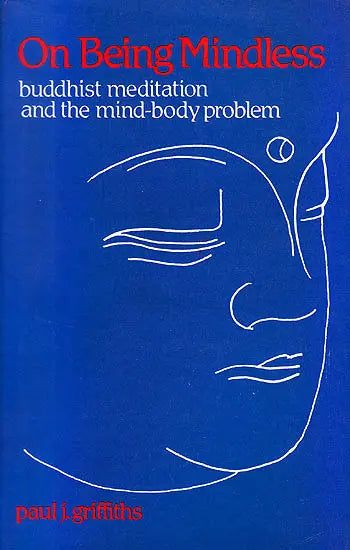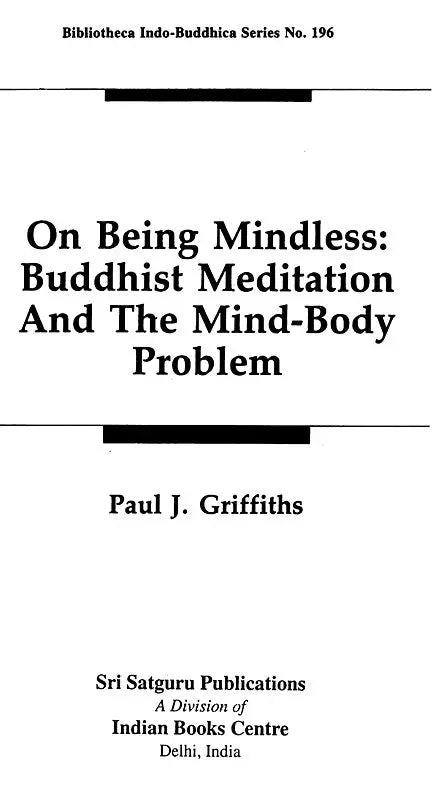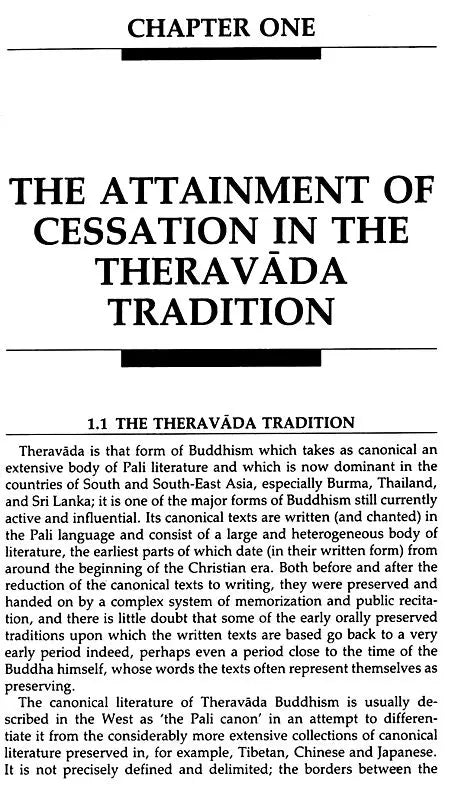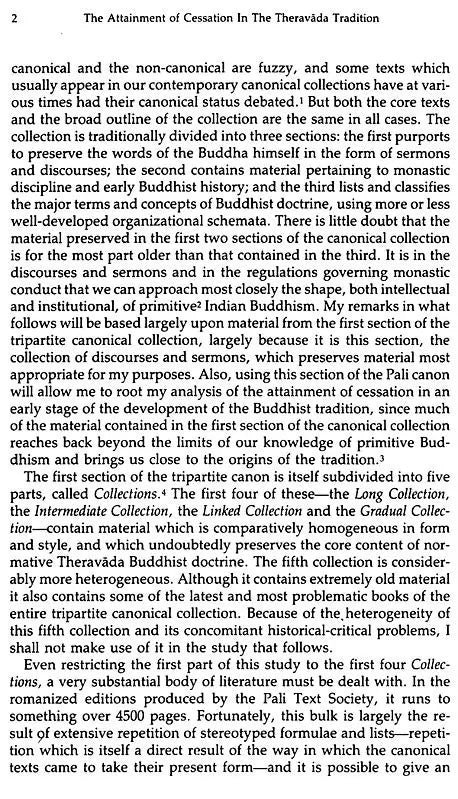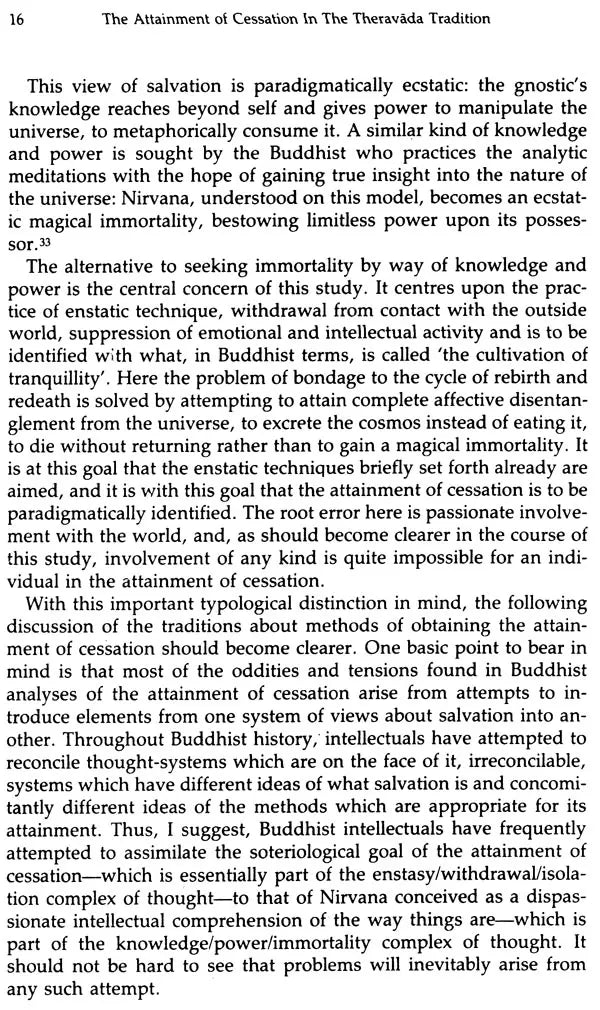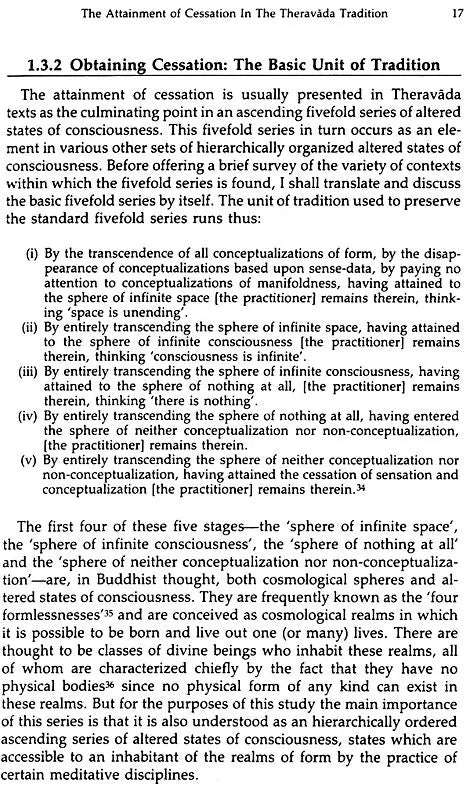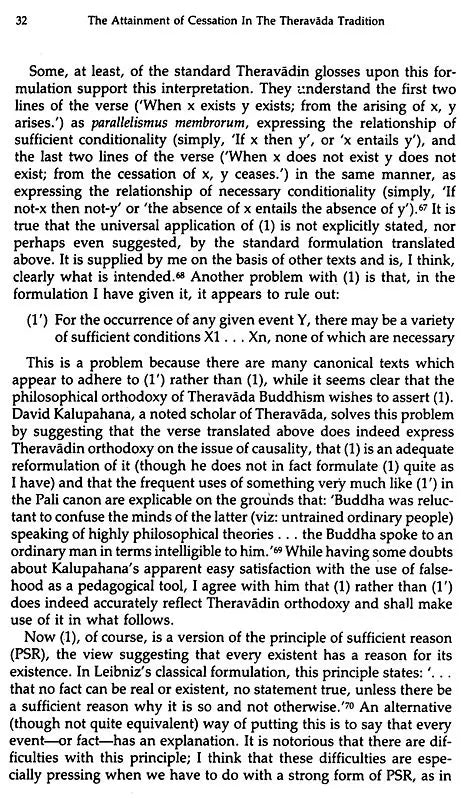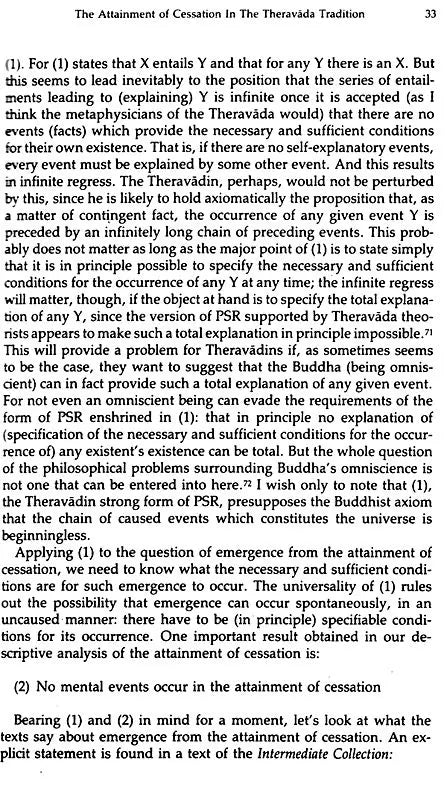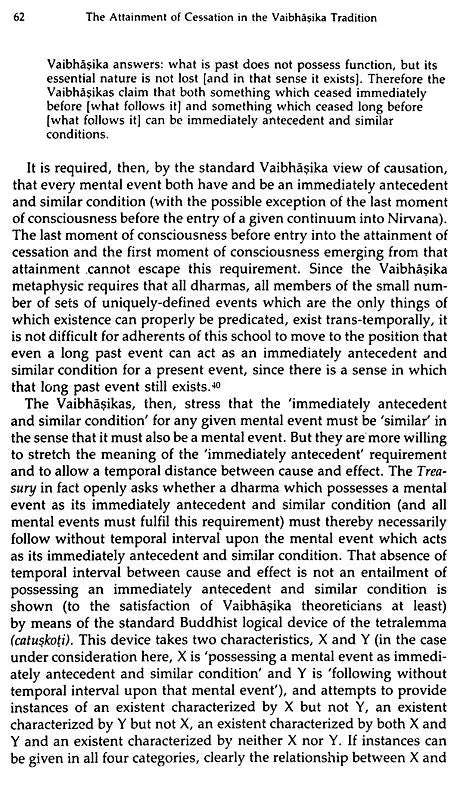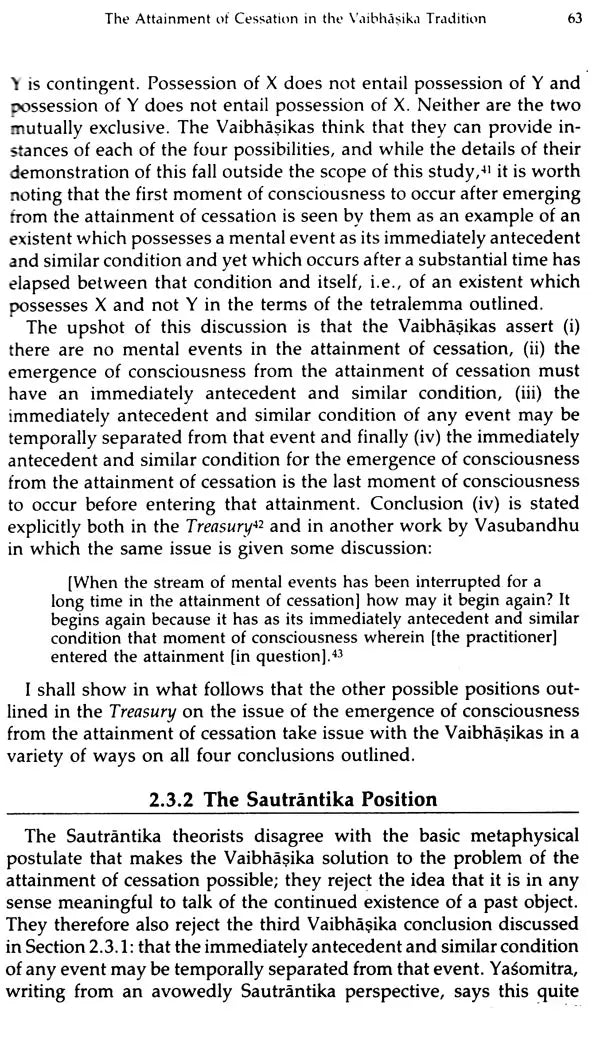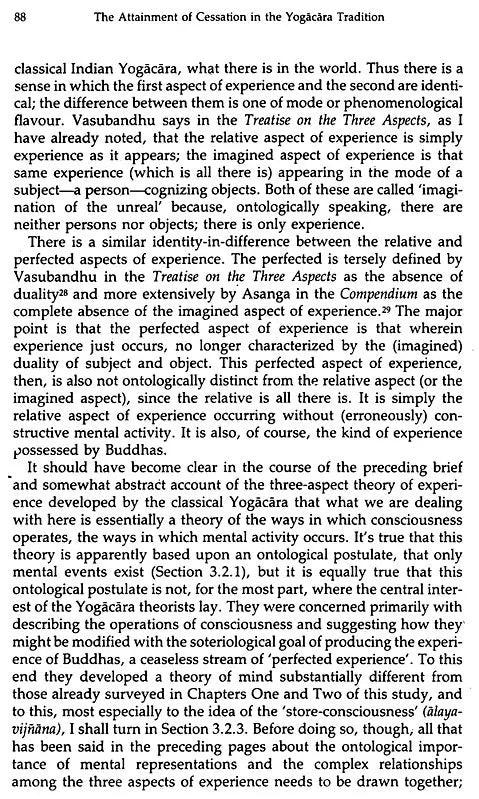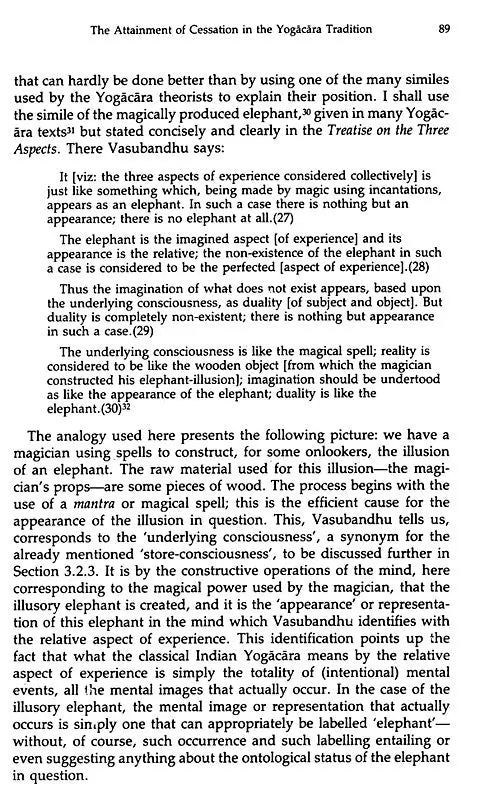On Being Mindless
On Being Mindless is backordered and will ship as soon as it is back in stock.
Couldn't load pickup availability
Genuine Products Guarantee
Genuine Products Guarantee
We guarantee 100% genuine products, and if proven otherwise, we will compensate you with 10 times the product's cost.
Delivery and Shipping
Delivery and Shipping
Products are generally ready for dispatch within 1 day and typically reach you in 3 to 5 days.
Book Title: On Being Mindless
Author: Paul J. Griffiths
Publisher: Sri Satguru Publications
Language: English
Edition: 1919
ISBN: 9788170306061
Pages: 240
Cover: Hardcover
Dimensions: 23 cm x 16 cm
Weight: 390 gm
About the Book
On Being Mindless explores the philosophical implications of meditative practices within the Buddhist tradition, specifically focusing on the concept of "mindlessness" or the attainment of cessation, a distinct altered state of consciousness. Indian Buddhist philosophers have discussed this meditative state extensively, where the mind is temporarily halted, resulting in a state of mindlessness, without mental functions or conceptualizations. The book is the first to present these discussions to an English-speaking audience, offering new insights into early Buddhist philosophy and translating texts that have not been available in Western languages before.
Griffiths presents a critical analysis of the concept of mindlessness, rejecting relativistic approaches to non-Western philosophical traditions. He argues that the functions, nature, and limits of rationality are fundamentally similar across cultures, encouraging a serious philosophical evaluation of Buddhist thought. The book examines the relationship between the mind and body, considering the implications of an altered mental state in meditation, and how such states can inform the understanding of Buddhist philosophical doctrines, including the concepts of salvation and enlightenment.
Through in-depth discussions of texts from early Indian Buddhism, Griffiths highlights the complexity and precision of Buddhist thought, offering a critical cross-cultural philosophical study. The book provides a fascinating case study in how specific meditational practices shape philosophical beliefs and how these practices contribute to the development of Buddhist metaphysics.
Introduction
In the introduction, Griffiths delves into the controversial nature of altered states of consciousness in Buddhism, particularly the attainment of cessation (nirodhasamapatti), where all mental functions cease temporarily. This state is considered significant in achieving enlightenment, but it raises philosophical questions about the mind-body relationship and the nature of consciousness. Griffiths examines the various schools of early Buddhism, including the Theravada, Vaibhasika, Sautrantika, and Yogacara, and their different approaches to understanding the attainment of cessation and its connection to soteriological goals.
Griffiths challenges the view that meditation in Buddhism is purely an esoteric or non-philosophical practice. Instead, he argues that meditative practices are central to the development of Buddhist philosophical systems. He emphasizes that philosophical analysis and meditative experience are intertwined, and the philosophical doctrines of Buddhism have often been shaped by the experiences of practitioners in altered states of consciousness.
About the Author
Paul J. Griffiths is a leading scholar in Buddhist philosophy and cross-cultural philosophy. He has made significant contributions to the study of Buddhist thought, particularly in relation to meditation, consciousness, and the philosophy of mind. Griffiths has taught at the University of Chicago, where he has been involved in the study of both South Asian languages and the philosophy of religion.
Conclusion
On Being Mindless offers a sophisticated exploration of Buddhist philosophy through the lens of meditative practice. It challenges Western scholars to reconsider the complexities of Indian Buddhist thought and offers a platform for cross-cultural philosophical dialogue. The book is a valuable resource for anyone interested in Buddhist philosophy, meditative practices, and the mind-body problem, providing new insights into the intersection of philosophy and religious practice.

